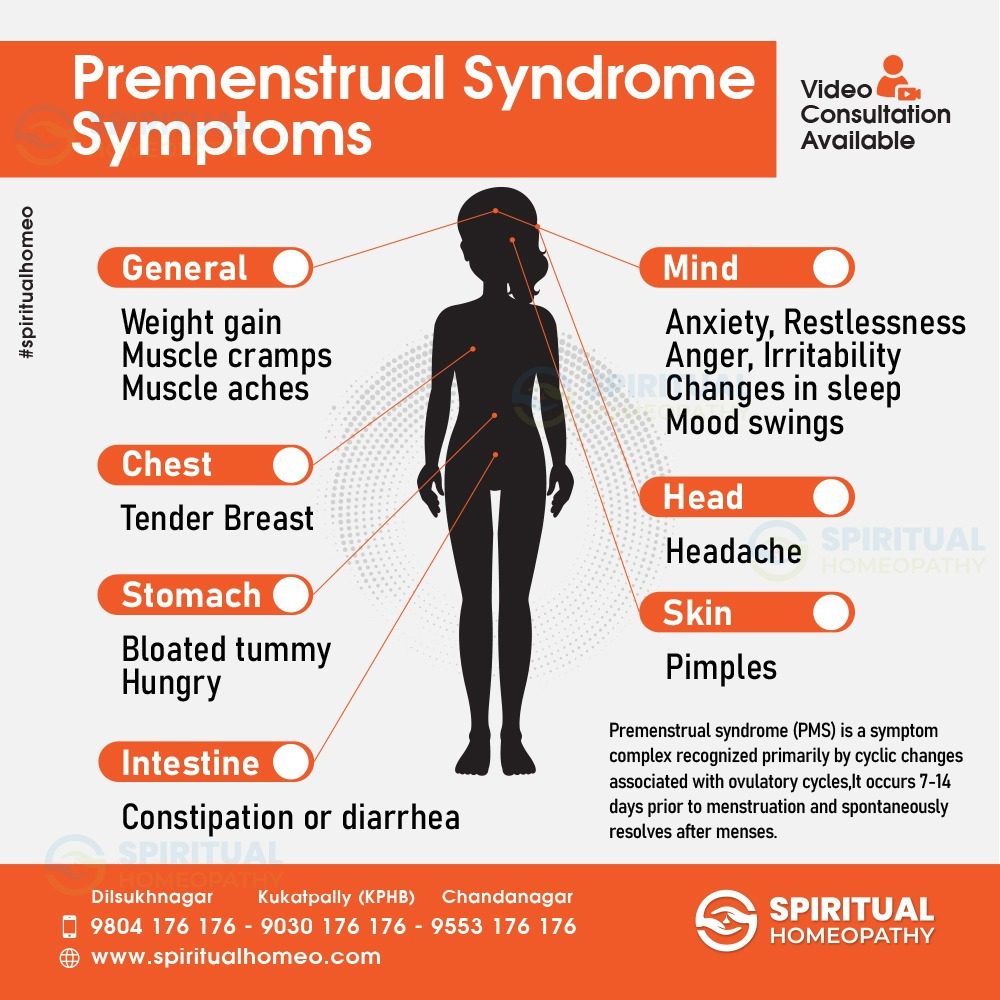Premenstrual syndrome (PMS) refers to a combination of physical and emotional symptoms that many women experience in the days or weeks leading up to their menstrual period. These symptoms can vary widely among individuals and can range from mild to severe. Some common symptoms of PMS include:
Physical Symptoms:
- Breast tenderness or swelling
- Bloating or water retention
- Abdominal cramps
- Headaches or migraines
- Fatigue or tiredness
- Joint or muscle pain
- Changes in appetite or food cravings
- Digestive issues such as constipation or diarrhea
Emotional Symptoms:
- Mood swings
- Irritability or anger
- Anxiety or nervousness
- Depression or sadness
- Crying spells
- Difficulty concentrating
- Changes in libido (sex drive)
- Insomnia or sleeping difficulties
It’s important to note that not all women experience all of these symptoms, and the severity of symptoms can vary from month to month. Additionally, some women may experience more severe premenstrual symptoms, a condition known as premenstrual dysphoric disorder (PMDD), which can significantly interfere with daily activities and quality of life.
If you or someone you know is experiencing severe or disruptive symptoms related to PMS or PMDD, it’s important to consult with a healthcare provider for proper evaluation and management. There are various treatment options available, including lifestyle changes, medications, and therapy, that can help alleviate symptoms and improve overall well-being.




